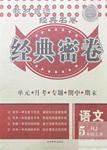题目内容
One Tuesday evening in the beginning of the fall 1996 semester at Shippensburg University, sirens(警笛) sounded. These sirens were not in celebration; they were a cry to the university that something was wrong. A house, only one block away, was on fire. Nine of the university's students lived there.
From the minute the word got out that help was needed, it seemed like everyone showed up. The victims of the fire were offered endless invitations for housing for the night. The very next day, everyone got into gear to do their part in helping them. Flyers (小传单) were posted with items that were immediately needed, just to get these students through this next couple of days. Boxes for donations and money jars were placed in every residence hall(学生宿舍).
As a residence director,I went before the students in my hall to ask them to do what they could. I knew that college students don't have much, but I asked them to do their best: “Every little bit will help." I really didn't think they could do much. I was proved wrong.
At the hall council meeting the night after the fire, my residents decided to have a wing competition, where each wing of the building would team up to see who could bring In the most donations. I announced that the wing who won would receive a free pizza party.
Thursday evening we announced over the PA system that we were beginning the wing competition. Within minutes, the place exploded. The single large box that I had placed in the lobby (太厅) was over-flowing. We quickly grabbed more boxes, and we watched in amazement as they, too, filled to the brim. Members of the resident assistant staff and I began to count the items. I was astonished by what I saw, and I was inspired by these kids.
When we came to the final tally(得分), the winners turned to me and announced that they would like to donate their winnings as well. They wanted the victims of the fire to have their pizza party.
Tears welled up in my eyes. I had watched these students jump to action, work tirelessly and donate all that they could. And then, as if that were not enough, they handed over their reward’s was touched and so very proud of them.
【小题1】The writer mainly wanted to by the story.
| A.tell us the suffering of nine of the college students from a fire |
| B.praise the college students helping the victims selflessly |
| C.tell us how successful the wing competition was |
| D.show he was deeply moved by the college students' action |
| A.be eager | B.take action | C.be prepared | D.start working |
| A.it was impossible to expect the college students to donate anything |
| B.it was easy to collect a lot of donations from the college students |
| C.the college students would donate not much |
| D.the college students would donate all the items they had |
| A.on Tuesday evening | B.on Thursday |
| C.on Wednesday evening | D.the very next day |
| A.Terrible. | B.Funny. | C.Surprised. | D.Serious |
【小题1】B
【小题2】B
【小题3】C
【小题4】B
【小题5】C
解析

 同步学典一课多练系列答案
同步学典一课多练系列答案 经典密卷系列答案
经典密卷系列答案 金牌课堂练系列答案
金牌课堂练系列答案 三新快车金牌周周练系列答案
三新快车金牌周周练系列答案